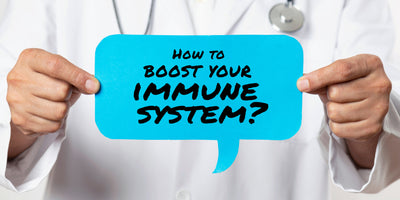
The Power of Astaxanthin And its Health-Boosting Properties
Nature's Super Antioxidant
Astaxanthin is a naturally occurring carotenoid, renowned for its exceptional antioxidant properties. Found in abundance in certain types of marine life, including salmon, shrimp, and algae, it's responsible for giving these organisms their vibrant pink or red hues. Astaxanthin stands out from other antioxidants due to its ability to cross the blood-brain and blood-retinal barriers, enabling it to exert its beneficial effects throughout the body, including the brain and eyes.
While all antioxidants can neutralize harmful free radicals, astaxanthin is uniquely efficient. Its structure allows it to span the bilayer of cell membranes, providing protection to both the interior and exterior of cells. Moreover, it never becomes a pro-oxidant, meaning it does not cause harmful oxidation in the body, a rare attribute among its antioxidant peers.
Despite these promising attributes, astaxanthin is not synthesized by the human body, and must be obtained through diet or supplementation. Also, it's essential to remember that while astaxanthin boasts numerous potential health benefits, it should not replace a balanced, varied diet and a healthy lifestyle. It should rather be seen as a valuable adjunct in the quest for optimal health.
Furthermore, while evidence for astaxanthin's health-boosting properties is growing, more extensive human trials are required to substantiate many of these claims. This will ensure accurate dosage recommendations and establish its long-term safety profile.
Unlocking the Health Benefits of Astaxanthin: A Comprehensive Overview
Astaxanthin is a potent player in the world of antioxidants. It's been linked to a multitude of health benefits, ranging from enhanced cardiovascular health and improved exercise performance to anti-aging effects and beyond. This versatile antioxidant works at a cellular level, neutralizing free radicals and reducing oxidative stress, a primary contributor to chronic diseases and aging.
At a cellular level, astaxanthin helps safeguard DNA from damage caused by free radicals. These free radicals can cause mutations in DNA, leading to conditions like cancer. By reducing oxidative stress, astaxanthin can potentially slow down cellular aging and guard against many diseases.
However, it's crucial to balance expectations. While research is promising, astaxanthin is not a cure-all. Its benefits should be integrated into a broader approach to health, including a balanced diet, regular exercise, and adequate sleep. Additionally, the field would benefit from more well-designed, large-scale human trials to validate these preliminary findings.
Astaxanthin's Role in Cellular Health and DNA Protection
Astaxanthin has demonstrated potential to protect cellular health on multiple fronts. First, it safeguards cell membranes. The structure of astaxanthin allows it to locate itself across the cell membrane, protecting against oxidative damage from both inside and outside the cell. This is a unique property not shared by many antioxidants.
Secondly, astaxanthin may shield DNA from oxidative damage. Oxidative stress can cause DNA to mutate, potentially leading to cancer and other diseases. Astaxanthin's antioxidant activity can neutralize the free radicals responsible for this damage, potentially reducing the risk of DNA mutation.
However, it's important to note that while laboratory and animal studies suggest these benefits, human trials are needed to confirm these findings. The human body is a complex system, and it's possible that results obtained in a laboratory setting may not translate exactly to real-world applications.
Fighting Inflammation with Astaxanthin: A Natural Approach
Inflammation is a double-edged sword. While it's essential for protecting the body against injury and infection, chronic inflammation can lead to numerous health problems, including heart disease, diabetes, and arthritis. Astaxanthin may help modulate the body's inflammatory response, offering a natural approach to countering chronic inflammation.
By suppressing various inflammatory mediators, astaxanthin can potentially alleviate inflammatory symptoms and reduce the risk of chronic diseases associated with inflammation. Notably, research has demonstrated its ability to inhibit the production of inflammatory cytokines, proteins that promote inflammation.
However, it's vital to consider that while astaxanthin may help manage inflammation, it is not a substitute for medical treatment for chronic inflammatory conditions. Always consult with a healthcare professional before starting any new supplement regimen, particularly if you have a pre-existing medical condition.
Another challenge lies in standardizing the dosage of astaxanthin for inflammation control, as most of the current studies are based on animal models. More extensive research is needed to establish definitive dosage guidelines for humans.
The Skin-Saving Benefits of Astaxanthin: Radiant Beauty from Within
Astaxanthin's antioxidant properties extend to skin health, too. Studies indicate that it can protect the skin from damage caused by ultraviolet (UV) rays, potentially reducing signs of aging such as wrinkles and age spots. It may also improve skin moisture levels, elasticity, and smoothness, giving a more youthful appearance.
Additionally, as astaxanthin can combat oxidative stress, it may help with skin conditions related to inflammation, such as acne or dermatitis. It provides a unique, internal approach to skin care that complements topical applications and treatments.
Nevertheless, the skin benefits of astaxanthin are supplemental. They should not replace a comprehensive skincare regimen that includes sun protection, hydration, and a healthy diet. Also, more human studies are required to identify optimal dosages for skin health and to further explore the potential benefits and limitations of astaxanthin in skin care.
Enhancing Vision and Preventing Age-Related Decline
Astaxanthin's antioxidant prowess makes it beneficial for eye health as well. It can cross the blood-retinal barrier, providing antioxidant protection directly to the eyes—an ability that many other antioxidants lack. This suggests it may play a role in preventing age-related eye diseases, such as macular degeneration and cataracts.
In addition, astaxanthin may help relieve eye strain and fatigue, a common problem in our screen-heavy modern lives. It could potentially enhance visual performance and protect the eyes from light-induced damage.
However, while these findings are promising, they are predominantly based on smaller studies. More extensive, long-term research is needed to solidify these benefits and establish appropriate dosages for eye health. Moreover, astaxanthin should be used as a supplement to, not a substitute for, regular eye check-ups and professional eye care.
Astaxanthin and Heart Health: Supporting Cardiovascular Wellness
Astaxanthin's antioxidant and anti-inflammatory effects may also support cardiovascular wellness. By reducing oxidative stress and inflammation, it can potentially decrease the risk of atherosclerosis—a condition characterized by the hardening of arteries. Studies have also indicated that astaxanthin might help improve blood lipid profiles and enhance blood flow, further promoting heart health.
Still, while the evidence thus far is promising, more large-scale human trials are needed to confirm these heart health benefits. It's important to note that astaxanthin is not a replacement for prescribed medications or a healthy lifestyle that includes regular exercise and a balanced diet. Always consult a healthcare professional before incorporating new supplements into your routine.
Astaxanthin's Anti-Aging Effects: Rejuvenating the Body at a Cellular Level
The potential anti-aging effects of astaxanthin stem from its powerful antioxidant action. By neutralizing free radicals, it can protect the body's cells from oxidative damage, a significant factor in aging. It may help maintain skin elasticity, protect eye health, and support overall cellular function, potentially slowing the aging process.
Moreover, astaxanthin's potential to inhibit inflammation also contributes to its anti-aging effects. Chronic inflammation is linked to numerous age-related conditions, from Alzheimer's to cardiovascular disease. By helping to manage inflammation, astaxanthin might combat these aging processes.
However, the notion of astaxanthin as an 'elixir of youth' should be approached with caution. While promising, these anti-aging benefits are part of a much larger picture that should include a balanced diet, regular exercise, good sleep, and stress management. Furthermore, human studies on astaxanthin's anti-aging effects are limited, and more research is needed to fully comprehend its potential.
Boosting Exercise Performance with Astaxanthin: Strength, Endurance, and Recovery
Astaxanthin could be a valuable addition to the nutritional arsenal of athletes and fitness enthusiasts. Its ability to combat oxidative stress and inflammation may help enhance physical performance, increase strength and endurance, and improve recovery times. By reducing the oxidative damage that occurs during intense physical activity, astaxanthin may aid muscle recovery and minimize post-workout fatigue.
There are also indications that astaxanthin may improve the body's use of fatty acids during exercise, which could potentially enhance endurance. However, these potential benefits are still being explored, and research thus far has shown mixed results.
Astaxanthin should be considered an adjunct to, not a substitute for, a comprehensive training program and a well-balanced diet. More research is needed to determine the optimal dosage for exercise performance and recovery, and to understand the extent of its impact on physical fitness.
How to Incorporate Astaxanthin into Your Daily Routine: Dosage and Sources
Astaxanthin is most commonly obtained through dietary sources or supplements. Salmon, shrimp, trout, and some types of algae and yeast are rich in astaxanthin. However, to achieve therapeutic benefits, supplementation may be necessary, as dietary intake might not provide sufficient amounts.
When choosing a supplement, look for a natural source of astaxanthin, as synthetic versions may not provide the same benefits. As of my knowledge cutoff in September 2021, the commonly recommended dosage for general health purposes is 4 to 12 mg per day, but consult a healthcare professional for personalized advice.
Incorporating astaxanthin into your routine should be considered a long-term investment in your health, as it may take several weeks for the benefits to become noticeable. And remember, while astaxanthin can contribute to overall health, it's not a magic bullet. A balanced diet, regular physical activity, adequate sleep, and a healthy lifestyle are the cornerstones of wellness.
Summary
Astaxanthin, a naturally occurring carotenoid found in marine life like salmon, shrimp, and algae, has gained substantial attention for its impressive antioxidant properties. Notably, astaxanthin can cross the blood-brain and blood-retinal barriers, reaching parts of the body that many other antioxidants cannot. However, while it shows numerous health benefits, astaxanthin is not produced by the human body and must be obtained through diet or supplements.
Astaxanthin's health benefits include its potential role in cellular health and DNA protection. Its unique structure allows it to position itself across cell membranes, shielding both their interior and exterior from oxidative damage. It can also neutralize the free radicals responsible for DNA damage, potentially reducing the risk of mutation and diseases like cancer. Still, more human trials are needed to confirm these benefits.
The antioxidant has also shown promising results in fighting inflammation, a key contributor to chronic diseases. It can suppress various inflammatory mediators and cytokines, potentially reducing the risk of conditions linked to chronic inflammation. However, astaxanthin should be seen as an adjunct to medical treatment, not a replacement, and more research is needed to standardize its dosage for inflammation control.
Astaxanthin's potential benefits extend to skin and eye health. It can protect the skin from UV damage and improve skin moisture levels, elasticity, and smoothness. It also provides antioxidant protection to the eyes, potentially preventing age-related eye diseases and relieving eye strain. But these benefits should not replace a comprehensive skincare regimen and regular eye care, and further studies are needed to identify optimal dosages for these applications.
The antioxidant may also support heart health by reducing oxidative stress and inflammation, potentially decreasing the risk of atherosclerosis. Astaxanthin might also improve blood lipid profiles and blood flow, but more human trials are necessary to confirm these benefits and to ensure it is used as a supplement to a healthy lifestyle, not a replacement for it.
Astaxanthin's antioxidant and anti-inflammatory effects might also confer anti-aging benefits, potentially slowing the aging process at a cellular level. However, while these effects are promising, more research is needed, and these benefits should be integrated into a broader approach to health, including a balanced diet, regular exercise, and adequate sleep.
In terms of exercise performance, astaxanthin's ability to combat oxidative stress and inflammation may enhance physical performance, increase strength and endurance, and improve recovery times. However, more research is required to establish optimal dosages and to fully understand its impact on physical fitness.
To incorporate astaxanthin into your daily routine, consider dietary sources like salmon or shrimp or opt for natural supplements. The commonly recommended dosage for general health purposes is 4 to 12 mg per day, but personalized advice from a healthcare professional should be sought. Remember, while astaxanthin can contribute to overall health, it is part of a much larger picture that includes a balanced diet, regular physical activity, adequate sleep, and a healthy lifestyle.






